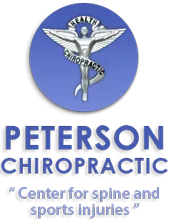We live in stressful times. The economy is tough, global conflicts rage, severe weather events are affecting people in every corner of the globe, and our numerous technological devices don't seem to be making things any easier. Of course, this is nothing new. Every generation thinks theirs is the best of times and the worst of times. But the result is that people everywhere have high levels of stress.
Sometimes stress is a good thing. Mechanical stress, such as exercise, causes your muscles and bones to become stronger and your nerve system to become smarter. Taking on a new assignment at work or taking a challenging class in school may be stressful, but the effort involved in achieving a successful result will cause you to grow and develop in ways that you might not have imagined. After all, the great philosopher Friedrich Nietzsche famously said "what doesn't kill you makes you stronger."
But chronic, ongoing physical and mental stress, the kind that affects us every day, is not good for us. Chronic stress causes real psychological and physical problems. People undergoing chronic stress may develop anxiety, which if not managed effectively may lead to depression. Chronic stress may lead to a variety of disorders and diseases, including arthritis, inflammatory conditions such as Crohn's disease, gastrointestinal problems such as peptic ulcer, diabetes,1 high blood pressure,2 and even heart attacks and stroke.3 As we are all subject to numerous stresses every day, both personal and work-related, it's very important for us to develop strategies that will be successful in helping us manage ongoing stresses.
The most important method for managing stress is to attempt to focus your point-of-view, your frame of reference, on the present moment. Our minds are constantly in motion, constantly at work creating new thoughts and new scenarios regarding some potentially stressful situation, or rehashing old conversations, old conflicts, and old problems. The result is that we're almost never at peace. When we try to sit down and relax for a bit, it's never too long before our minds start bringing up the exact things we'd like to be able to forget or ignore, at least for a little while. Most of us can't flip a metaphorical switch and shut off our incessant stream of mostly negative self-talk. But we can learn to remind ourselves to return to the present, to come back to this moment, the one that's happening now.
The best way to do this is to ask yourself, "is this [what I'm thinking about] happening right now?" If you can see that what's happening now is that you're sitting in a chair reading the newspaper, you have a good chance of being able to let go of what your mind is talking to you about. Say to yourself, "I'm right here, right now, and none of that other stuff is actually happening right now." This will help you create some distance from your self-talk, and the self-talk may even recede into the background for a while. The feeling of calm you might then experience is one you can build on. The more you practice returning to the moment, the more power you gain in being able to manage the stress in your life.
1Bener A, et al: Association between psychological distress and gastrointestinal symptoms in diabetes mellitus. World J Diabetes 3(6):123-129, 2012
2van Dijk, AE, et al: The association between prenatal psychosocial stress and blood pressure in the child at age 5-7 years. PLoS One 7(8):e43548, 2012
3Pereira VH, et al: Stressed brain, diseased heart: A review on the pathophysiologic mechanisms of neurocardiology. Int J Cardiol 2012 Apr 20 [Epub ahead of print]
